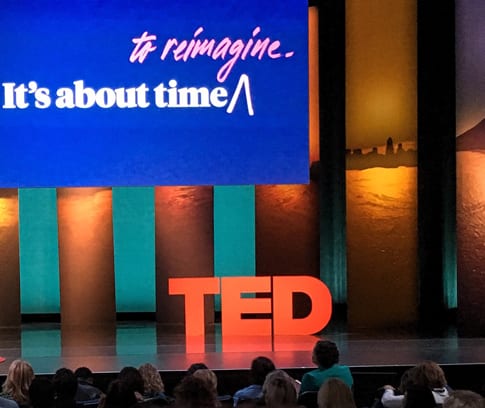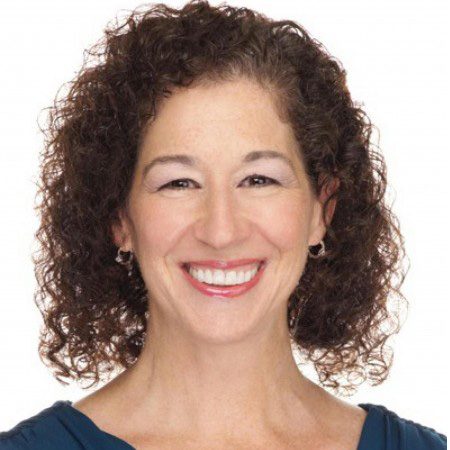 Like most of us, I struggle with the concept of time. Why if time is constant – 60 seconds in a minute, 60 minutes in an hour, 24 hours in a day – do some days fly by while others seem to last forever? Why does an hour waiting in line feel five times as long as an hour spent sharing a meal? WHY do I never seem to have enough time?
Like most of us, I struggle with the concept of time. Why if time is constant – 60 seconds in a minute, 60 minutes in an hour, 24 hours in a day – do some days fly by while others seem to last forever? Why does an hour waiting in line feel five times as long as an hour spent sharing a meal? WHY do I never seem to have enough time?
As a communicator, time comes into play as we often find ourselves fighting the clock, working to beat the clock and wishing we could stop the clock on a daily basis.
Given my own preoccupation with time and its logic-defying properties, I was interested in TEDWomen’s focus on Time this year. Even intrigued. And so last week I headed to the Yerba Buena Center for the Arts in San Francisco to hear 45 speakers talk about Time.
I have chosen five to highlight. While the others were worthy as well, in a time-starved world, I thought these five might provide other communicators a view into the insights I heard, remind them of valuable lessons in how to relay information and hopefully help all of our communications better stand the test of time.
One of the first speakers was author, Laura Vanderkam, who spoke about how working professionals can live balanced, productive lives – a concept that seems to elude most of us. As communicators, I believe living in balance is critical if we are to bring the insights, creativity and strategy needed to ensure that our messages breakthrough in powerful ways. Vanderkam started with a simple line, “We don’t build the lives we want by saving time; we build the lives we want then time saves itself.” And ended with the idea, “There is time, even if we are busy; there is time for what matters and if we focus on what matters, we can build the lives we want.” I couldn’t agree more.
Lila Davachi, a memory researcher, shared how the brain creates, stores and retrieves memories. She explained the difference between objective and subjective time and made the point that experiences that contain very little variance are the ones that seem to drag. Her research showed that how you feel time passing in the moment is different from how it lives on in your memory of that time. It made me wonder whether communicators can help people create the memories of the time they spend at work or home in ways that are beneficial to them in how they think about that time.
Sisonke Msimang talked to us about the power of the mainstream narrative. Working in public relations, a profession in which we consider ourselves storytellers, I was fascinated by her thoughts on the varied types of purpose stories can serve. They can be the anecdote to bias, they can help us fall in love, they can build bridges and even make us care. Yet at the same time, stories don’t necessarily make the world a better place, but the people who read them, just might.
As a co-creator of Ketchum’s CSR program, I was very interested in what Michele Sullivan, director of corporate social innovation at Caterpillar, had to say, “I will never know what it is like to be you and you will never know what it is like to be me,” was one of the opening statements she made as she hit the TED stage. She had my full attention. Through her stories, her humor and her compassion, she had me rethinking the role we play in other people’s successes. She ended by reminding all of us that. “We can’t walk in each other’s shoes, but with compassion, courage and understanding, we can walk side-by-side.”
My final highlight from TEDWomen is Kathy Hull, co-founder of the first freestanding children’s hospice in the United States, who shared poignant life lessons including the following thought: “It’s not by pretending that death doesn’t exist that we keep people safe. We cannot change the outcome but we can change the journey.” It says it all.
While most of us in business don’t regularly communicate about life or death issues, we sometimes have to communicate challenging news like earnings that have missed the mark, layoffs or other unpopular decisions. The importance of hitting these and other tough topics head-on may not change the outcome but it just might change the way employees accept the changes and remain engaged in both the short- and long-run.
The TEDWomen conference was well worth my time and I left with more than I imagined including the takeaway that our mission as communicators might be more critical that we often think. I’ll now leave you with a final philosophical thought about time to ponder. How is it that a decision that is made in an instant can have an impact that lasts forever? Perhaps that is the making of another post.
